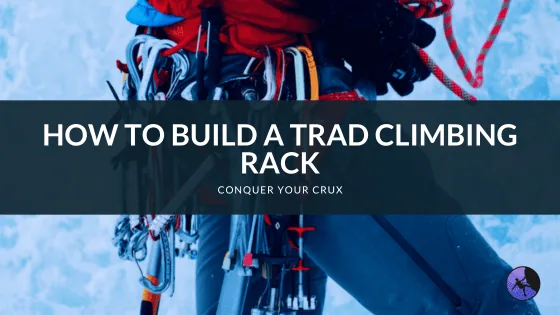Rock climbing has existed in its current form since the 70s, but it hasn’t started to become popular until much more recently. With rock climbing in the Olympics in three different forms, its popularity has skyrocketed again. One of the most popular forms of climbing is bouldering. Bouldering consists of short climbs and no ropes. Boulder routes are called problems and are an excellent way for new climbers to get into the sport since they require so little gear.
In this article, we’ll be discussing what a beginner boulderer should know before they start bouldering. We’ll be talking a little about the techniques used in bouldering as well as the gear needed. We hope to answer all the commonly asked questions when it comes to starting to boulder.
How Hard is Bouldering for Beginners?
Bouldering is a great introduction to climbers for beginners. Since bouldering requires minimal gear and can be done without needing large amounts of technical knowledge or training, it is a great form of climbing for beginners to start out with.
Even though bouldering is a great form of climbing for beginners, it won’t necessarily be easy for a beginner. Bouldering requires a lot of strength and body control to get good at it, but almost anybody can do easy boulder problems.
One of the big reasons that a lot of people lean towards bouldering in the bouldering vs. rock climbing debate is that bouldering is a lot lower to the ground. If you are scared of heights or even wary of heights, bouldering might feel a whole lot more comfortable than being tied to a rope way up in the air.
 What Should You Prepare Before Bouldering?
What Should You Prepare Before Bouldering?
Before you go bouldering, you’ll want to make sure you are ready. The first thing you should do is to make sure your body is ready to try a new physical activity. Make sure that you are not hurt or injured in any way since bouldering could make existing injuries worse. Staying safe should be your priority, so make sure you are healthy when you choose to go bouldering.
The next thing you’ll want to consider is the clothes you will wear. Bouldering, as with other forms of climbing, requires you to be able to move your body freely, so make sure you don’t wear any constricting clothes. Athletic shorts, T-shirts, leggings, joggers, and yoga pants all make excellent bouldering clothes. You don’t need anything expensive or fancy, just clothes you can move comfortably in.
Last but certainly not least, you’ll want to think about the gear you will need. If you are bouldering indoors, the gym should have pads all over the floor, so all you will need are shoes and chalk, both of which you can typically rent from gyms. If you are choosing to go bouldering outdoors, you will still need shoes and chalk, but you will also need a pad. A bouldering pad keeps you safe if you fall or drop off a boulder, so it is essential to your safety.
 How Often Should a Beginner Go Bouldering?
How Often Should a Beginner Go Bouldering?
One of the most common bouldering beginner mistakes is bouldering too much. Of course, the number of times in a week you should go bouldering or how long you should go bouldering for each time varies greatly for each person, but there are some boundaries to consider.
When you first start bouldering, your body is not yet used to repeated falls and strain on your muscles. Make sure you are taking cues from your body and not pushing it too hard when you first start bouldering, or you might end up getting injured. Try going bouldering two or three times a week to start so you are not overexerting yourself and you are giving yourself plenty of time to allow your body to heal and recover.
When you go bouldering, make sure you are not bouldering for hours straight. It is hard to estimate how long you should be bouldering because a large part of bouldering can be standing around looking at boulder problems or talking with fellow climbers. If you go bouldering for too long and your body becomes fatigued, you are more likely to climb with poor form and end up injured.
Just make sure you are listening to your body. If it needs some time off, please give your body the time it needs to recover and rest. This doesn’t mean you can’t do something else on your off days, like go for a run or play a different sport, but you just need to give your joints and muscles a break from the strain of bouldering.
 5 Bouldering Tips for Beginners
5 Bouldering Tips for Beginners
Here are our favorite bouldering tips for beginners:
1. Use your legs while climbing
Most people think that bouldering and climbing are all about your arms, but it’s really all about your legs. Your legs are your strongest muscles, so make sure you use them. Instead of pulling with your arms, think about pushing with your legs more.
2. Climb on your skeleton
Similar to tip 1, climbing on your skeleton will help minimize the amount of pulling you are doing with your arms. This will excerpt much less energy and allow your muscles to rest much more than if you were always hanging in a pull-up position. Keep your shoulders engaged, but try to keep your arms as straight as possible, especially when hanging on a hold for a while.
3. Learn how to fall safely
As everyone falls, learning how to fall is an essential skill in bouldering. To fall safely, make sure you land in an athletic stance and allow your body to melt to the ground, absorbing the impact of the fall. Falling onto straight legs will cause damage to the joints in your legs and not allow you to absorb any of the impacts of the fall.
4. Be aware of your surroundings.
Being aware is a big part of bouldering. Be aware of your body and if you are in someone’s way. Be aware of the pads under you and any hard surfaces nearby, so you know how to avoid them. Be aware of other people and try to stay out of their way when they are climbing. It can feel like a lot to think about at first, but being fully aware of your surroundings gets easier with time.
5. Don’t stress about the shoes.
The biggest piece of bouldering equipment is the shoes, and they can cause a lot of stress. Especially when you are starting out, you don’t need the fanciest shoes to enjoy bouldering, so don’t force yourself to wear aggressive and tight shoes that hurt your feet. The best bouldering shoes for beginners are generally each brand’s starter shoes. They have a wider foot box for comfort and are not aggressive. As you get better, you can start to invest in more specialized shoes, but don’t worry when you are just starting out.
 Do’s and Don’ts While Bouldering
Do’s and Don’ts While Bouldering
There are a lot of things that people will tell you that you should or should not do when bouldering, but we’re breaking down the do’s and don’ts of bouldering into a few easy-to-remember things.
Do be aware of your body. If you start feeling like a move is hurting, stop doing it. If other people are climbing near you, make sure you are in control of your body and are aware of where it is since you don’t want to hit other climbers while climbing.
Don’t walk underneath another climber while they are on the wall or rock. Make sure you are aware of your surroundings and are not walking under another climber or are not standing in their fall zone. Being aware of climbers around you is essential to making sure that everyone stays safe while bouldering.
Do ask for help if you need it. Understanding that it is ok to ask for help is hard for some people, and we understand that, but with a sport like bouldering or climbing in general, knowing who you can ask for help is a key part of staying safe. If you are unsure about a move or don’t know where to put your pad, find someone to ask for help instead of just guessing.
Don’t be afraid to fall. Make sure you are falling safely onto bent knees and allowing your body to melt to the ground, absorbing the impact, but falling is a huge part of bouldering. Practicing falling and getting comfortable landing on the pad will go a long way toward keeping you safe while bouldering.
Do have fun! Bouldering might be a competitive thing for some people, but that doesn’t mean it has to be that for everyone. If you are not having fun, try a different style of route or a different style of climbing, but make sure you are having fun!
Wrapping Things Up: Bouldering Tips for Beginners
Regardless of if you are indoor bouldering or outdoor bouldering, the gear needed and the technical skills required are minimal, making bouldering a great entry point to the larger sport of rock climbing. Bouldering is approachable because of its low cost of entry and its proximity to the ground, making it less daunting than roped climbing but just as challenging in its own right.
Hopefully, we’ve been able to answer all of your burning questions about getting into bouldering and what you need to know to do so safely. Just remember that bouldering, and rock climbing in general, are inherently dangerous activities, but if you climb safely and are aware of your surroundings, you should feel completely safe when bouldering.


 What Should You Prepare Before Bouldering?
What Should You Prepare Before Bouldering? How Often Should a Beginner Go Bouldering?
How Often Should a Beginner Go Bouldering? 5 Bouldering Tips for Beginners
5 Bouldering Tips for Beginners Do’s and Don’ts While Bouldering
Do’s and Don’ts While Bouldering

